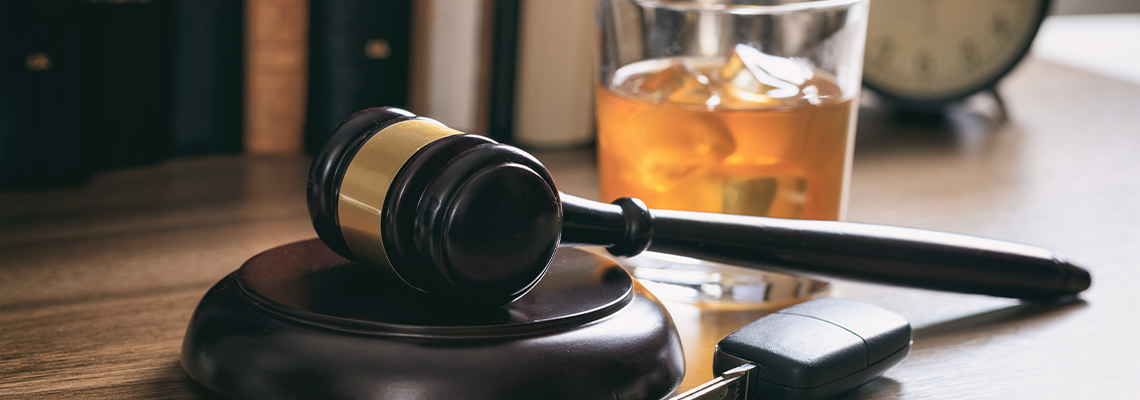Digital evidence can shape white-collar investigations long before anyone is arrested. Emails, chat logs, accounting files, cloud records, and even routine device data can be pulled into a timeline that prosecutors can use to explain who did what, when, and why.

DUI vs. DWI in New York
In New York State, the terms commonly associated with impaired driving are often misunderstood due to the nuanced legal distinctions between them. Though many states use DUI (Driving Under the Influence) and DWI (Driving While Intoxicated) interchangeably, New York doesn't use the term DUI. Instead, the state prefers to use DWI and DWAI to categorize and penalize impaired driving.
New York DWI vs. DWAI Laws
Legally, New York primarily recognizes DWI as the offense of operating a vehicle with a Blood Alcohol Content (BAC) of 0.08% or higher for drivers of standard vehicles and 0.04% for commercial drivers.
On the other hand, the state also has a lesser charge, DWAI (Driving While Ability Impaired). DWAI is for motorists found to have a BAC between 0.05% and 0.07%, or exhibiting impairment due to alcohol.
What Constitutes Impairment in New York?
Drivers in New York can be deemed impaired by more than just alcohol. Prescription drugs, over-the-counter medications, and illegal substances can also contribute to impairment. The law takes a broad approach, considering any substance that affects a driver's nervous system, muscles, or brain activity as potentially impairing.
BAC limits are not one-size-fits-all, and the law is sensitive to specific demographics. Commercial drivers and those with higher BAC levels face even more stringent repercussions.
The Legal Fallout of a DUI or DWI Conviction
A conviction for a DWI or DWAI in New York is not a trivial matter. The penalties can be severe and carry long-term effects that ripple through various aspects of your life. Immediate consequences often include license suspension, loss of employment, court fines, DMV assessments, community service, enrollment in education programs, and even probation or jail time for cases with aggravating factors.
Beyond the Courtroom
Along with the legal consequences, there are many other potential consequences from a criminal conviction.
Auto insurance premiums can skyrocket, job opportunities may dwindle, and individuals might encounter difficulties obtaining housing. While the immediate fine and loss of driving privileges are significant, these secondary consequences can be equally life-altering.
New York’s ignition interlock device (IID) program is a prime example, where individuals with certain DWI convictions must blow into an alcohol-sensing device before starting their vehicles, and while driving. This mandate can last months or even years, impacting mobility and autonomy, in addition to being expensive.
What to Do After You're Arrested
Being arrested for DUI or DWI starts an often long process. From alcohol evaluations and drug tests, to multiple court appearances and potential plea bargains, it's important that you don't face it alone.
The Gravity of Chemical Testing
A driver’s refusal to submit to the police station BAC test, typically administered via breath, blood, or urine, can lead to immediate suspension of driving privileges, and a possible long-term license revocation. The refusal may also be used against him or her in court as consciousness of guilt, meaning the refusal was due to being drunk.
Crafting a Defense
When charged with a DWI or DWAI in New York, there are several defense strategies that may be employed depending on the details of the case, including:
Faulty Equipment. One common defense is challenging the accuracy of the BAC testing equipment. This might involve questioning the calibration of the breathalyzer or the procedures followed during the test.
Legality of the Traffic Stop. Another approach is to scrutinize the legality of the traffic stop itself; if the stop was conducted without reasonable suspicion, any evidence gathered as a result could be deemed inadmissible.
Sobriety Test Mistakes. Many officers do not administer the Standardized Field Sobriety Tests (SFSTs) in the proper manner. If the tests are not administered properly, their results are not accurate, and may not give the officer probable cause to arrest.
Medical Conditions. Defendants might argue that their impairment was not due to the consumption of alcohol or drugs but could be attributed to medical conditions that mimic impairment symptoms, such as diabetes or neurological disorders. In cases where prescription medication is involved, proving that the individual was taking medicine according to a doctor’s prescription and not exceeding recommended doses can be a viable defense.
Legal defenses in DWI/DWAI cases are highly technical and require a thorough understanding of both the law and the specifics of each charge. It's crucial to consult with a knowledgeable attorney who can explore all possible defense options to mitigate the consequences or potentially have the charges reduced or dismissed.
Legal Counsel's Role in Acquittal or Mitigation
Seeking legal counsel is more than a recommendation; it's a strategic move that can significantly affect the outcome of your case. A criminal defense attorney, particularly one with expertise in DUI/DWI defense, is equipped to scrutinize the evidence and build a case that presents your side effectively in court.
Understand Your Rights
For individuals grappling with the aftermath of a DWI or DWAI charge, know that our attorneys at the Law Office of Michael D. Litman, PLLC are on your side, offering advice and direction based on years of experience. With the right guidance and a proactive approach, you can pave a new path forward.
The Law Office of Michael D. Litman, PLLC had handled hundreds of DWI and DWAI cases in Westchester and the surrounding counties. We know how prosecutors handle the cases, and how the judges, in each individual court treat individuals charged with DWI. We help our clients get the best possible outcome in their DWI and DWAI cases.
RECENT POSTS
Facing criminal charges can be an overwhelming and stressful experience, particularly when they could escalate from a misdemeanor to a felony. Many people may not realize that what starts as a seemingly minor offense can, in certain circumstances, turn into something far more serious with much more severe consequences.
In New York, misdemeanors are divided into three main categories: Class A, Class B, and unclassified misdemeanors. Class A misdemeanors are the most serious, while Class B misdemeanors are less severe, and unclassified misdemeanors often involve specific statutes such as traffic or local ordinances. Although misdemeanors are less severe than felony offenses, they can still carry significant penalties, including jail time, fines, and a lasting criminal record.




